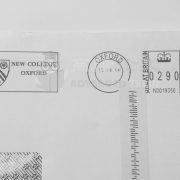代寫:基金管理
代寫:基金管理
最近,中國零售市場的投資基金由於新計劃和新發展而迅速增長。資本市場上的基金管理也出現了羊群行為和黑屏現象。傳統上,基金經理費用是由國家規定的。根據這些指示,市場正在對業績變化做出反應,並進一步為中國企業營造了氛圍。 《中華人民共和國證券投資基金法》對通過託管人投資的證券和基金進行管理。基金集中投資資金和託管,由基金經理管理,通過金融工具用於股票、債券和其他投資。最初,證券投資基金制度還制定了一種權力平衡制度,託管由基金管理人管理。因此,基金存在雙重監管。
代寫:基金管理
一旦資產被投資,基金託管人和投資者不會直接干預。監督只通過參加由基金持有的國會來行使。大量的投資者認為要統一有很多困難,“搭便車”現象非常嚴重。共同基金公司為管理投資組合而收取的費用按基金資產的百分比計算。更有可能的是,一家基金公司可以將管理費與基金的表現和基準掛鉤。績效或激勵費用是否能提高回報,或者僅僅是營銷標準,可以說服投資者購買高級管理層?理論上,這些激勵費用是好的,因為積極的基金經理有額外的理由來提高基金業績。此外,資產管理公司的薪酬比例高,基金表現越好,而低比例,基金表現越差。
代寫:基金管理
Recently, investment funds in China’s retail market have grown rapidly owing to new schemes and developments. There are also signs of herd behaviour and black screen being observed in regard to the fund management in the capital markets. Traditionally, the fund manager fee had been regulated from the state. And as per these directives, the market was responding to changes in performance and further built the climate for Chinese businesses. Securities Investment Fund Law of the People’s Republic of China governs the securities and funds invested through custodians. Funds focus investment money and trusteeship through custodians, managed by fund managers for use in stocks, bonds and other investments through financial instruments. Initially, the Securities Investment Fund System also prepared a Balance of Power system where the trusteeship is with custodian and management by fund managers. Therefore, there is dual supervision for fund.
代寫:基金管理
There is no direct intervention from fund custodian and investors once the assets are invested. The supervision is only exercised by attending to congress held by fund. A large number of investors have the opinion that there are many difficulties to unify, and ‘free rider’ phenomenon is very serious. The fees that mutual-fund firms collect for managing portfolios are set as a percentage of fund assets. It is even more likely that a fund firm can link management fees to a fund’s performance versus its benchmark. Could performance or incentive fees enhance returns, or are they just marketing criteria that can persuade investors into purchasing superior management? Theoretically, these incentive fees are good as active managers have additional reason for boosting fund performance. Also, asset managers are paid high percentage the better funds do and low percentage the worse they do.








